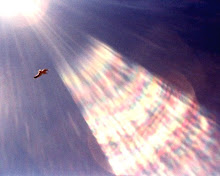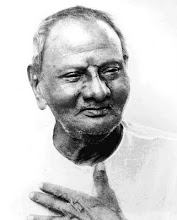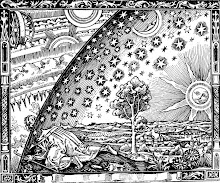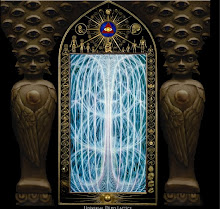
Fonte: Wikipedia, the free encyclopedia
Alan Wilson Watts (January 6, 1915 – November 16, 1973) was a philosopher, writer, speaker, and expert in comparative religion. He was best known as an interpreter and popularizer of Asian philosophies for a Western audience.
He wrote more than twenty-five books and numerous articles on subjects such as personal identity, the true nature of reality, higher consciousness, and the pursuit of happiness, relating his experience to scientific knowledge and to the teachings of Eastern and Western religions or philosophies (Zen Buddhism, Taoism, Christianity, Hinduism, etc.).
Early years
Watts was born to middle class parents in the village of Chislehurst (now in the London Borough of Bromley), Kent, England in the year 1915. His father was a representative for the London office of the Michelin Tyre Company, his mother a housewife whose father had been a missionary. With modest financial means, they chose to live in bucolic surroundings and Alan, an only child, grew up learning the names of wild flowers and butterflies, playing beside streams, and performing funeral ceremonies for birds.
Probably because of the influence of his mother’s religious family, the Buchans, an interest in "ultimate things" seeped in. But it mixed with Alan’s own interests in storybook fables and romantic tales of the mysterious Far East. Watts also later wrote of a mystical sort of vision he experienced while ill with a fever as a child. During this time he was influenced by Far Eastern landscape paintings and embroideries that had been given to his mother by missionaries returning from China. With regard to the examples of Chinese paintings he was able to see in England, Watts wrote "I was aesthetically fascinated with a certain clarity, transparency, and spaciousness in Chinese and Japanese art. It seemed to float..." [as presented in his autobiography]. These works of art emphasized the participative relationship of man in nature, a theme that would be important to him throughout his life.
Buddhism
By his own assessment, Watts was imaginative, headstrong, and talkative. He was sent to boarding schools (which included both academic and religious training) from early years. During holidays in his teen years, Francis Croshaw, a wealthy epicurean with strong interests in both Buddhism and the exotic little-known aspects of European culture, took Watts on a trip through France. It was not long afterward that Watts felt forced to decide between the Anglican Christianity he had been exposed to and the Buddhism he had read about in various libraries, including Croshaw’s. He chose Buddhism, and sought membership in the London Buddhist Lodge which had been established by Theosophists, and was now run by the barrister Christmas Humphreys. Watts became the organization’s secretary at 16 (1931). The young Watts explored several styles of meditation during these years.
Education
Watts attended King's School next door to Canterbury Cathedral. Though he was frequently at the top of his classes scholastically, and was given responsibilities at school, he botched an opportunity for a scholarship to Oxford by styling a crucial examination essay in a way that was read as presumptuous and capricious.
Hence, when he graduated from secondary school, Watts was thrust into the world of employment, working in a printing house and later a bank. He spent his spare time involved with the Buddhist Lodge and also under the tutelage of a "rascal guru" named Dimitrije Mitrinović. (Mitrinović was himself influenced by Peter Demianovich Ouspensky, G. I. Gurdjieff, and the varied psychoanalytical schools of Freud, Jung and Adler.) Watts also read widely in philosophy, history, psychology, psychiatry and Eastern wisdom.
Influences and first publication
London afforded him a considerable number of other opportunities for personal growth. Through Humphreys, he contacted eminent spiritual authors (e.g., Nicholas Roerich, Dr. Sarvapalli Radhakrishnan) and prominent theosophists like Alice Bailey. In 1936, aged 21, he attended the World Congress of Faiths at the University of London, heard D.T. Suzuki read a paper, and afterwards was able to meet this esteemed scholar of Zen Buddhism. Beyond these discussions and personal encounters, he absorbed, by studying the available scholarly literature, the fundamental concepts and terminology of the main philosophies of India and East Asia. In 1936, Watts's first book was published, The Spirit of Zen, which he later acknowledged to be mainly digested from the writings of Suzuki.
In 1938 he and his bride left England to live in America. He had married Eleanor Everett, whose mother Ruth Fuller Everett was involved with a traditional Zen Buddhist circle in New York. A few years later, Ruth Fuller married the Zen master (or "roshi"), Sokei-an Sasaki, and this Japanese gentleman served as a sort of model and mentor to Alan, though Watts chose not to enter into a formal Zen training relationship with Sasaki.
During these years, according to his later writings, Watts had another mystical experience while on a walk with his wife.
Priesthood and after
Watts had left formal Zen training in New York because the method of the teacher didn't suit him. He was not ordained as a Zen monk, but he felt a need to find a professional outlet for his philosophical inclinations. He entered an Anglican (Episcopalian) school (Seabury-Western Theological Seminary, in Evanston), where he studied Christian scriptures, theology, and Church history. He attempted to work out a blend of contemporary Christian worship, mystical Christianity, and Asian philosophy. Watts was awarded a master's degree in theology in response to his thesis, which he published as a popular edition under the title Behold the Spirit. The pattern was set, in that Watts did not hide his dislike for religious outlooks that he decided were dour, guilt-ridden, or militantly proselytizing, whether found within Judaism, Christianity, Hinduism, or Buddhism.
All seemed to go reasonably well in his next role, as Episcopalian priest (beginning in 1945, aged 30), until an extramarital affair resulted in his young wife having their marriage annulled. It also resulted in Watts leaving the ministry by 1950. He spent the New Year getting to know Joseph Campbell; his wife, Jean Erdman; and John Cage.
In the spring of 1951, Watts moved to California, where he joined the faculty of the American Academy of Asian Studies in San Francisco. Here he taught alongside Saburo Hasegawa, Frederick Spiegelberg, Haridas Chaudhuri, lama Tokwan Tada, and various visiting experts and professors. Hasegawa, in particular, served as a teacher to Watts in the areas of Japanese customs, arts, primitivism, and perceptions of nature.
Watts also studied written Chinese and practiced Chinese brush calligraphy with Hasegawa as well as with some of the Chinese students who enrolled at the Academy. While Watts was noted for an interest in Zen Buddhism, with its origins in China, his reading and discussions delved into Vedanta, "the new physics," cybernetics, semantics, process philosophy, natural history, and the anthropology of sexuality.
Middle years
After heading up the Academy for a few years, Watts left the faculty for a freelance career in the mid 1950s. He began what became a long-running weekly radio program at Pacifica radio station KPFA in Berkeley. Like other volunteer programmers at the listener-sponsored station, Watts was not paid for his broadcasts; they did, however, gain him a large following in the San Francisco Bay Area. These programs were later carried by additional Pacifica stations, and were re-broadcast many times over in the decades following his death. The original tapes are currently held by the Pacifica Radio Archive, based at KPFK in Los Angeles.
In 1957 when 42, Watts published one of his best known books, The Way of Zen, which focused on philosophical explication and history. Besides drawing on the lifestyle and philosophical background of Zen, in India and China, Watts introduced ideas drawn from general semantics (directly from the writings of Alfred Korzybski) and cybernetics (Norbert Wiener's early work on cybernetics had been recently published). Watts offered analogies from cybernetic principles possibly applicable to the Zen life. The book sold well, eventually becoming a modern classic, and helped widen his lecture circuit.
Around this time, Watts toured parts of Europe with his father, meeting the renowned psychiatrist Carl Jung. In relation to modern psychology, Watts's instincts were closer to Jung's or Abraham Maslow's than to those of Freud.
Experimentation
When he returned to the United States, he began to dabble in psychedelic drug experiences, initially with mescaline given to him by Dr. Oscar Janiger. He soon tried LSD several times with various research teams led by Drs. Keith Ditman, Sterling Bunnell, and Michael Agron. He also tried DMT, later stating that it was 'like loading the Universe into a gun and firing it into your brain'. Watts’s books of the sixties reveal the influence of these chemical adventures on his outlook. He would later comment about drug use, "When you've got the message, hang up the phone." [1]
For a time, Watts came to prefer writing in the language of modern science and psychology (Psychotherapy East and West is a good example), finding a parallel between mystical experiences and the theories of the material universe proposed by twentieth-century physicists. He later equated mystical experience with ecological awareness, and emphasized whichever approach seemed best suited to the audience he was addressing.
Philosophical development
Watts's explorations and teaching brought him into contact with many noted intellectuals, artists, and American teachers in the human potential movement. His friendship with poet Gary Snyder nurtured his sympathies with the budding environmental movement, to which Watts gave philosophical support. He also encountered Robert Anton Wilson, who credited Watts with being one of his 'Light[s] along the Way' in the opening appreciation of Cosmic Trigger.
Though never affiliated for long with any one academic institution, he did have a fellowship for a couple of years at Harvard University. He also lectured to many college and university students. His lectures and books gave Watts far-reaching influence on the American intelligentsia of the 1950s-1970s, but Watts was often seen as an outsider in academia. While some college and university professors found his writing and lectures interesting, others said things like: "He's not really a scholar of Eastern philosophy. He's not that disciplined. Alan Watts doesn't teach Eastern philosophy, he teaches 'Alan Watts.'" To which he replied in numerous lectures that "the scholar who is interested in medals and prizes and not interested in the fun of it, has amazing put downs." He pointed this out with an example: "The original scholars in history were men that owned land, and being rich they had enough free time to study in their library, not for the progress of science, but for fun." Another Japanese Zen master, Maezumi Roshi, however, once remarked, "Alan Watts? He is not Zen!"--a perfectly Zen-like response that may well have delighted Watts.
Applied aesthetics
Watts often alluded to or wrote about a group of neighbors in Druid Heights[2] (near Mill Valley, California), who had endeavored to combine architecture, gardening, and carpentry skills to make a beautiful and comfortable life for themselves. Druid Heights was founded by the writer Elsa Gidlow.
Regarding his intentions, it can be argued that Watts attempted to lessen the alienation that accompanies the experience of being human that he felt plagued the modern Westerner, and (like his fellow British expat and friend, Aldous Huxley) to lessen the ill will that was an unintentional by-product of alienation from the natural world. He felt such teaching could improve the world, at least to a degree. He also articulated the possibilities for greater incorporation of aesthetics (for example: better architecture, more art, more fine cuisine) in American life. In his autobiography he wrote, "… cultural renewal comes about when highly differentiated cultures mix" (Watts, In My Own Way).
Later years
In his writings of the 1950s, he conveyed his admiration for the practicality in the historical achievements of Chán (Zen) in the Far East, for it had fostered farmers, architects, builders, folk physicians, artists, and administrators among the monks who had lived in the monasteries of its lineages.
In his mature work, he presents himself as "Zennist" in spirit as he wrote in his last book, Tao, the Watercourse Way. Child rearing, the arts, cuisine, education, law and freedom, architecture, sexuality, and the uses and abuses of technology were all of great interest to him.
On the personal level, Watts sought to resolve his feelings of alienation from the institutions of marriage and the values of American society, as revealed in classic his comments on love relationships in "Divine Madness" and on perception of the organism-environment in "The Philosophy of Nature".
In looking at social issues he was quite concerned with the necessity for international peace, for tolerance or even understanding among disparate cultures. He also came to feel acutely conscious of a growing ecological predicament; as one instance, in the early 1960s he wrote: “Can any melting or burning imaginable get rid of these ever-rising mountains of ruin – especially when the things we make and build are beginning to look more and more like rubbish even before they are thrown away?" [The Joyous Cosmology] These concerns were later expressed in a television pilot made for NET filmed at his mountain retreat in 1971 in which he noted that the single track of conscious attention was wholly inadequate for interactions with a multi-tracked world.
Political stance
In his writings, Watts alluded to his own political shift from Republican conservatism to a more liberal legal and political outlook. However, his opinions did not lean to the political left. He was more libertarian, distrusting both the left and right, and finding an early libertarian outlook in the Chinese sage Chuang-Tzu. He disliked much in the conventional idea of "progress". He hoped for change, but personally he preferred amiable, semi-isolated rural social enclaves, and also believed in tolerance for urban tenderloins, social misfits, and eccentric artists. Watts decried the suburbanization of the countryside and the way of life that went with it.
In one campus lecture tour, which Watts titled "The End to the Put-Down of Man", Watts presented positive images for both nature and humanity, spoke in favor of the various stages of human growth (including the teenage years), reproached excessive cynicism and rivalry, and extolled intelligent creativity, good architecture and food.
On spiritual and social identity
Watts felt that ethics (at least of the judgmental Judeo-Christian kind) had nothing to do with the fundamental realization of one’s deep spiritual identity. He advocated social rather than personal ethics. In his writings, Watts was increasingly concerned with ethics applied to relations between humanity and the natural environment and between governments and citizens. He wrote out of an appreciation of a racially and culturally diverse social landscape. At the same time, he favored representative government rather than direct democracy (which he felt could readily degenerate into mob rule).
He often said that he wished to act as a bridge between the ancient and the modern, between East and West, and between culture and nature.
Watts led some tours for Westerners to the Buddhist temples of Japan. He also studied some movements from the traditional Chinese martial art T'ai Chi Ch'uan, with an Asian colleague, Al Chung-liang Huang. Watts lived his later years at times on a houseboat in Sausalito on San Francisco Bay and at times in a secluded cabin on Mount Tamalpais. Laden with social and financial responsibilities, he struggled increasingly with alcohol addiction, which probably shortened his life.[3] In October 1973 he returned from an exhausting European lecture tour. Watts died of heart failure in his sleep at home the following month at the age of 58.
Family life
Alan Watts was married three times and had five children including two sons, the oldest of whom, Mark Watts, has recently served as curator of his father's work.
Books
1936 The Spirit of Zen, Paperback. 1969 ISBN 0-8021-3056-9
1937 The Legacy of Asia and Western Man
1940 The Meaning of Happiness, Paperback. 1970, ISBN 0-06-080178-6
1944 Theologica Mystica of St. Dionysius, (translation from Greek of pseudo-Dionysius, now available online)
1948 Behold the Spirit:A Study in the Necessity of Mystical Religion, Vintage ed. 1972, ISBN 0-394-71761-9
1950 Easter - Its Story and Meaning
1950 The Supreme Identity, Vintage ed. 1972, ISBN 0-394-71835-6
1951 The Wisdom of Insecurity, Vintage ed. 1968, ISBN 0-394-70468-1
1953 Myth and Ritual in Christianity, Beacon Press 1971, ISBN 0-8070-1375-7
1957 The Way of Zen, Vintage Spiritual Classics 1999, ISBN 0-375-70510-4
1958 Nature, Man, and Woman, Vintage reissue 1991, ISBN 0-679-73233-0
1960 "This Is It" and Other Essays on Zen and Spiritual Experience, Vintage reprint 1973, ISBN 0-394-71904-2; excerpted essay: "The New Alchemy"
1961 Psychotherapy East and West, Vintage ed. 1975, ISBN 0-394-71609-4 (excerpt here)
1962 The Joyous Cosmology - Adventures in the Chemistry of Consciousness
1963 The Two Hands of God - The Myths of Polarity
1964 Beyond Theology - The Art of Godmanship, Vintage 1973, ISBN 0-394-71923-9
1966 The Book - On the Taboo Against Knowing Who You Are, Vintage reissue 1989, ISBN 0-679-72300-5 (excerpt here)
1967 Nonsense, ISBN 0-525-47463-3. This book is an interesting spiritual application of literary nonsense.
1970 Does It Matter?: Essays on Man's Relation to Materiality, Vintage ed. 1971, ISBN 0-394-71665-5
1971 Erotic Spirituality - The Vision of Konarak
1972 The Art of Contemplation
1972 In My Own Way - An Autobiography 1915-1965, Vintage 1973, ISBN 0-394-71951-4
1973 Cloud-hidden, Whereabouts Unknown: A Mountain Journal, Vintage 1974, ISBN 0-394-71999-9
Posthumous publications
1974 The Essence of Alan Watts, Celestial Arts 1977, ISBN 0-89087-210-4
1975 Tao: The Watercourse Way, with Al Chung-liang Huang, Pantheon 1977, ISBN 0-394-73311-8
1976 Essential Alan Watts
1978 Uncarved Block, Unbleached Silk: The Mystery of Life
1979 Om: Creative Meditations
1982 Play to Live
1983 Way of Liberation: Essays and Lectures on the Transformation of the Self
1985 Out of the Trap
1986 Diamond Web
1987 The Early Writings of Alan Watts, Paperback. 1995, ISBN 0-89087-794-7
1990 The Modern Mystic: A New Collection of Early Writings
1994 Talking Zen
1995 Become What You Are, Shambhala Expanded ed. 2003, ISBN 1-57062-940-4
1995 Buddhism: The Religion of No-Religion
1995 The Philosophies of Asia
1995 The Tao of Philosophy, edited transcripts, Tuttle Publishing 1999, ISBN 0-8048-3204-8
1996 Myth and Religion
1997 Taoism: Way Beyond Seeking
1997 Zen and the Beat Way
1998 Culture of Counterculture
1999 Buddhism: The Religion of No-Religion, edited transcripts, Tuttle Publishing, ISBN 0-8048-3203-X
2000 Still the mind : an introduction to meditation, New World Library, ISBN 1-57731-214-7
2000 What is Zen?, New World Library, ISBN 0-394-71951-4
2000 What is Tao?, New World Library, ISBN 1-57731-168-X
Audio and video works, essays
Including recordings of lectures at major universities and multi-session seminars:
1960 Eastern Wisdom in Modern Life, television series, (here)
1960 Essential Lectures, audio recordings, (here)
1960 Nature of Consciousness, essay, (here)
1960 The Value of Psychotic Experience
1960 The World As Emptiness
1960 From Time to Eternity
1960 Lecture On Zen
1960 The Cross of Cards
1960 Taoism
1962 This Is IT
1968 "Psychedelics & Religious Experience", in California Law Review (here)
1969 Why Not Now: The Art of Meditation
2005 Do You Do It, or Does It Do You?: how to let the universe meditate you (CD)
2007 Zen Meditations with Alan Watts, DVD, (here)
References
^ http://www.erowid.org/culture/characters/watts_alan/watts_alan.shtml Erowid Character Vaults: Alan Watts
^ http://www.techgnosis.com/index_druid.html Druids and Ferries
^ Zen Effects, p. 188–189
Charters, Ann (ed.). The Portable Beat Reader. Penguin Books. New York. 1992. ISBN 0-670-83885-3 (hard cover); ISBN 0-14-015102-8 (paperback)
Furlong, Monica, Zen Effects: The Life of Alan Watts Houghton Mifflin. New York. 1986 ISBN 0-395-45392-5, Skylight Paths 2001 edition of the biography, with new forward by author: ISBN 1-89336132-2
Watts, Alan, In My Own Way New York. Random House Pantheon. 1973 ISBN 0-394-46911-9 (his autobiography)
External links
Wikiquote has a collection of quotations related to:
Alan Watts
The Alan Watts Archive
Alan Watts Podcast - The official Podcast of Alan Watts
Alan Watts Online - Project Unicorn
Watts essay on Nothingness
"Alan Watts Theatre" - audio recordings of Watts set to animations by Trey Parker and Matt Stone, the creators of South Park
Audio archive from Do It Yourself Dharma website
Alan Watts Lectures and Essays Audio, video, essays and articles - resources from deoxy.org



































































Nenhum comentário:
Postar um comentário